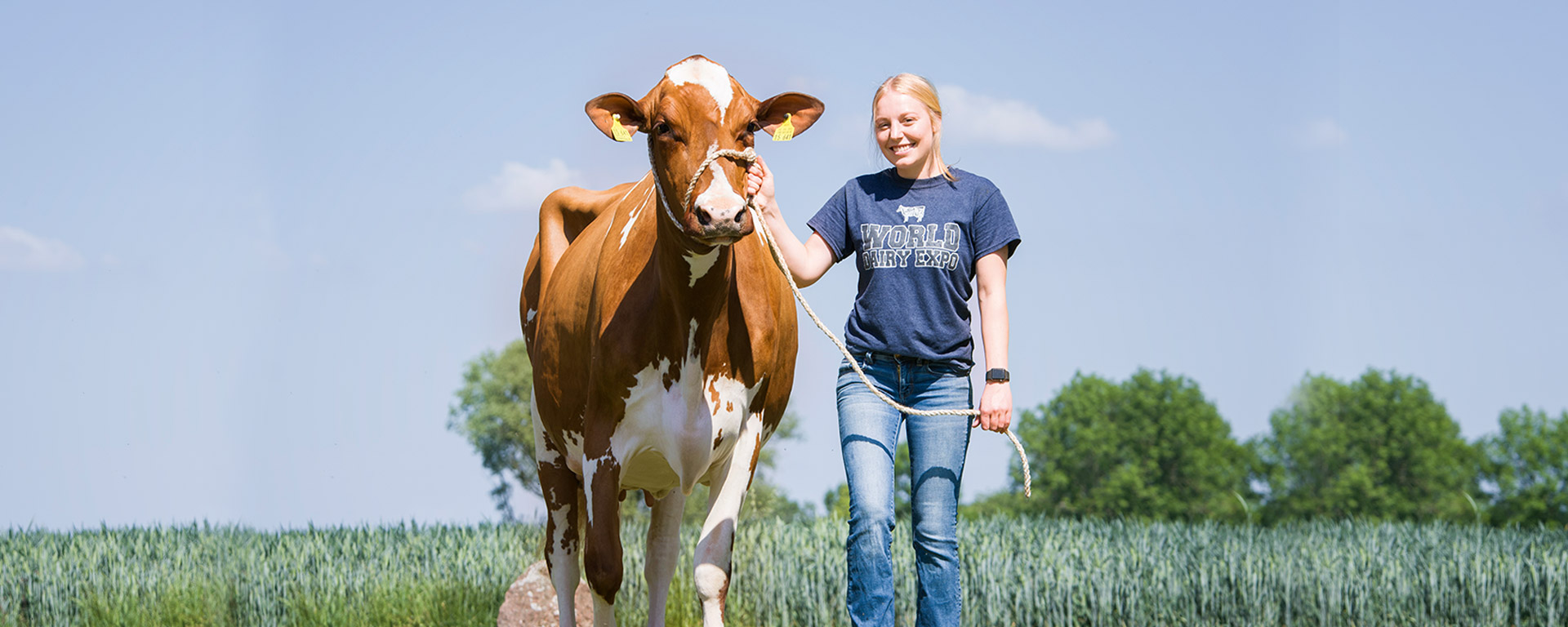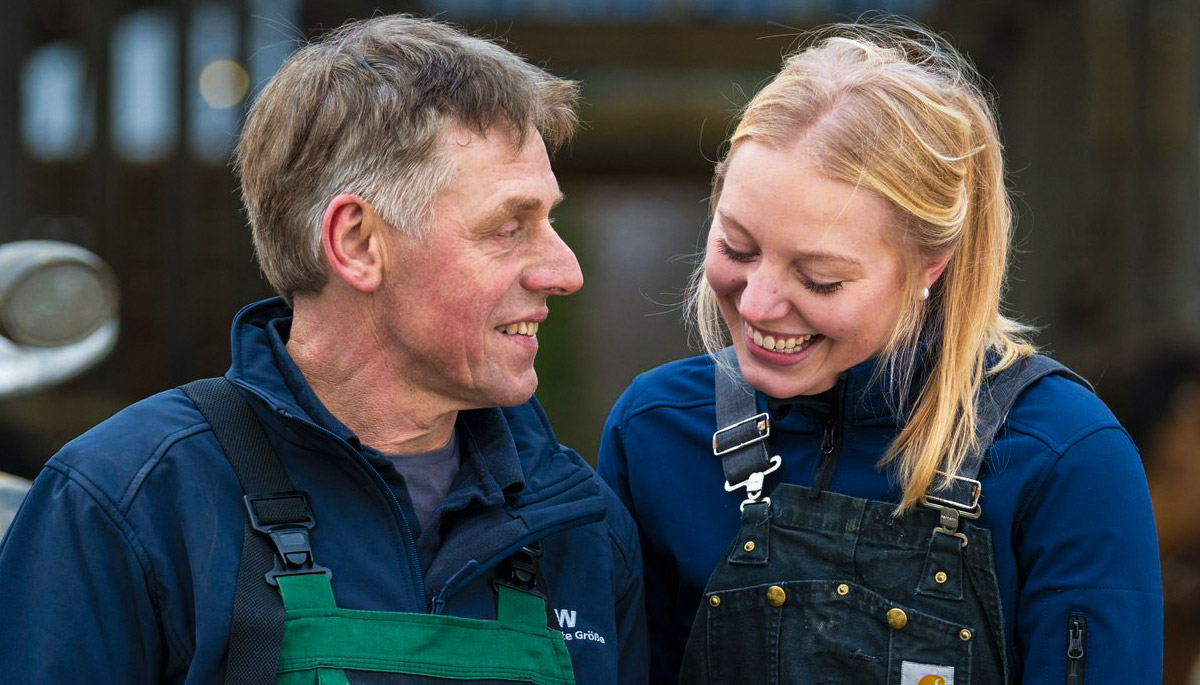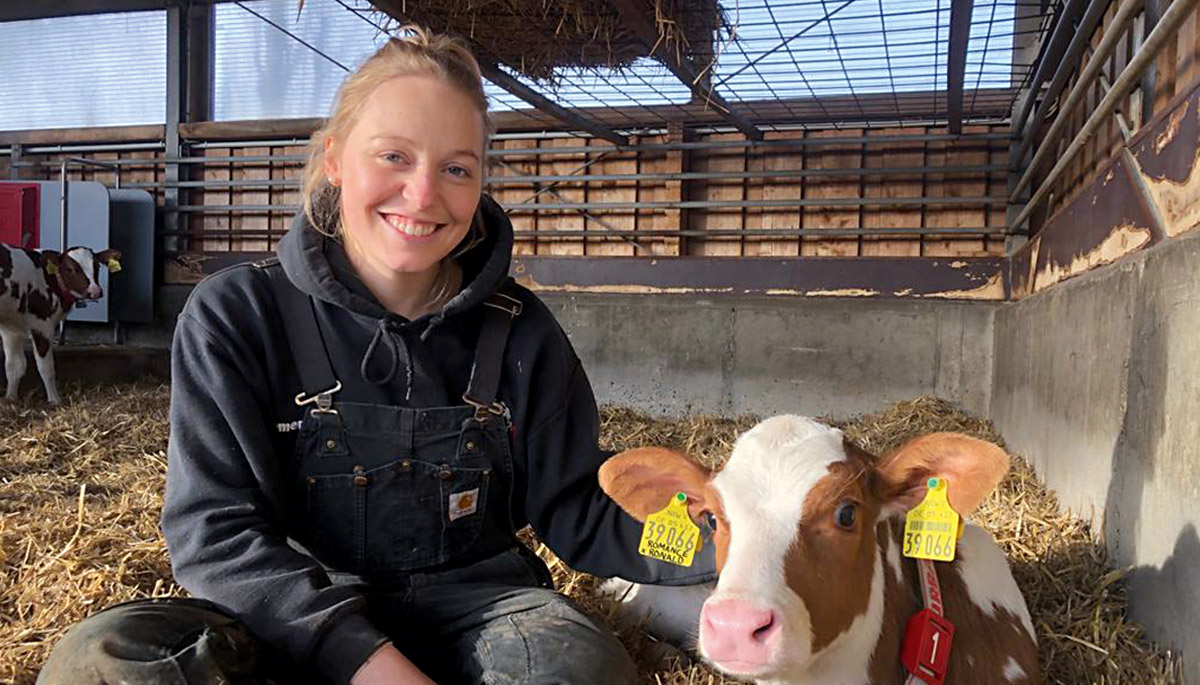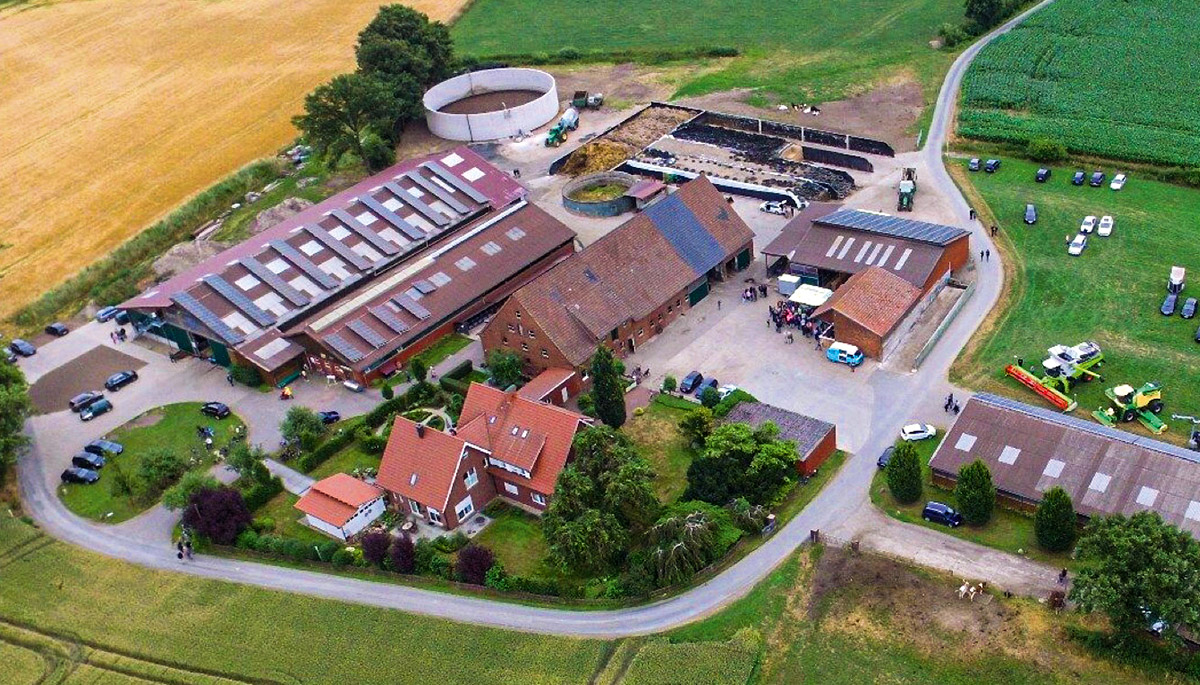Whiz kid DMK Farmer


The thoughts all rush in at once, Leonie Wiewer says, mostly when she’s standing in front of the stables at the heart of the Altendorf farming community. What could I do to further develop the farm? How can I make that happen? She was already winning prizes for breeding animals at the age of 16, before becoming a qualified farmer by the time she was 20. Now, the 24-year-old agronomist helps her parents run their farm in North Rhine-Westphalia. A job she has done ever since she could walk, she now enjoys thinking about the many ways she could develop the farm in the future. Farmers like Leonie Wiewer no longer have just one job to do. They also need to be strategists who place their raw materials on fluctuating sales markets, architects who can fix their buildings and good communicators who can tell consumers what the business is really like.
“Our profession is about much more than driving manure around,” says Wiewer. The dificult conditions farmers face require a great deal of creativity and thinking outside the box. Farmers must anticipate situations before they arise, hone their instincts and develop senses that can’t be taught in a classroom. “We need a certain eye for things.” She will take over her father’s farm in a few years. It is her home and has been in the family for many generations. “Each cow has a name,” she says. “I know their their bloodlines better than my own. I am proud to be able to care for the descendants of the same family of cows that once moved and inspired my grandfather.” She says she could not imagine it any other way. But like any farmer, she also has to figure out how to adapt the farm to the demands of the present day.


At some point, she will take over the farm from her father.
She will need financial resources for that, but she will also need more openness and understanding from the public. As someone who loves animals, she suffers when she hears statements like “Animal welfare and exploiting animals are mutually exclusive!” or “Loving animals then slaughtering them is not okay!” That kind of talk worried her and she began to question the way agriculture works as a system. “In the end, though, one thing is clear for me: I am a trained farmer and I have all the background knowledge and experience possible. The welfare of my animals is what matters most to me. It would be a problem if that wasn’t the case,” she says. “I can say with absolute certainty that I give them a good life.” In her view, agriculture in Germany is at such a high level that any departure from it would be a major mistake. The main thing is that people should cooperate more, she says. “In future, we can consider ourselves lucky if we can still get food that’s produced under incredibly high standards like in Germany.”
Keep on learning, never stand still, optimize the business, all these thoughts keep Leonie Wiewer busy. She is most proud of a sales hut she set up to sell raw milk, cheese, eggs and pasta straight from the farm. “It took a lot of work, time and patience to establish it, but it was worth it in the end.” The hut draws people to the farm which creates new opportunities for interaction. Alongside marketing her hut, she also breeds animals, taking care of everything from the insemination to the marketing aspect of the business. It’s work she knows well, having started bringing animals to compete in young breeders’ contests from the age of six. She spent a long time training with the animals in preparation, she recalls. One thing is for sure, she wouldn’t want a desk job.


Loving the job, loving the calf: Leonie Wiewer is also responsible for inseminating the cows.
Leonie Wiewer will take over the farm at some point, when she will oversee 130 cows, 250 young animals, 120 hectares of land and a diverse team of helpers. She has managed a lot on her own already but she’s aware that things will be different then. “It’s something else when you have to calculate, implement and take responsibility for everything.” Sometimes all it takes is a year of drought and the reserves are gone, given the high feed costs.
Sometimes she realizes just how many jobs are involved in being a farmer. She finds herself being a midwife, a kindergarten teacher, a hairdresser, marketer, mechanic, chemist and entrepreneur... and the list goes on. “All in all, there’s a great deal of responsibility involved,” she says. It takes a lot of stamina to do the job well in a world in which things are changing ever faster. Amid all her visions and dreams, that’s a sobering thought. But she is confident. After all, farmers have lived with risk for centuries. That’s what makes the profession what it is, namely one with a “great deal of variety, new challenges and the chance to make your dreams come true. You’re constantly growing beyond your limits – it’s incredibly exciting!” How she will master it all in the future? That, she says, remains to be seen. Watch this space.


The farm in Altendorf near Münster has been in her family for generations
Engineer: “Something needs fixing every day, whether it’s the barn door that’s stuck, the pasture fence is broken or a window’s rattling. In those moments, you have to be flexible and creative. Sometimes, you grab some tape, nails or cable ties and figure out a temporary fix.”
Midwife: “Preparing for the birth of calves, supporting the animals and caring is also part of our daily work. I watch the cow during the birth so I can intervene and support her if necessary. Later, I give her glucose and warm water to help her get stronger.”
Nutritionist: “We have all the feed we produce, like grass or corn, tested in a laboratory to find out exactly what it contains, so we know precisely how much energy, protein, starch and fat it has and can ensure it meets our animals’ needs.”
Veterinarian: “Since the animals can’t tell me if they are in pain, or where it hurts, I have to work out what’s wrong and decide how best to help. You develop a sense for it, though, as you get more and more experience.”
Influencer: “I carry my camera around and regularly take photos and make videos and post them on our Facebook and Instagram pages. They might show harvest, births or other topics, for example. I do that to balance out the fact that people don’t know much about our industry and to give anyone who’s interested a look at what agriculture is like these days. It takes a fair amount of time but it’s worth it.”